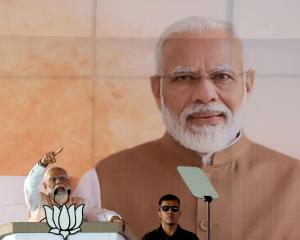After a majority of British people voted to leave the European Union, they must decide what sort of a country and what sort of European they want to be, Joshua Riddiford writes.
Britain's divorce from the EU will be complicated. It
will take years to unfold and no-one knows what shape it will take in the end.
Article 50 of the Lisbon Treaty governing a member's desire to withdraw from the EU is expected to be triggered at some stage and that process will take at least two years.
British Prime Minister David Cameron has resigned, recognising the untenable nature of his position having campaigned for Britain to "Remain'', and speculation is rife as to who his successor may be.
Markets have, largely, rebounded following dips after the Brexit vote so the predicted calamity has not yet resulted.
However, the major question over Brexit is whether Britain will take the opportunity to continue to open itself up through trade and immigration with the rest of the world while maintaining a constructive relationship with the EU, or close itself off.
Some Brexiteers have put forward the argument Britain could negotiate myriad trade agreements in a post-Brexit situation.
In these circumstances, Britain would not need to placate protectionist interests from EU states which could slow progress on agreements.
This could include closer economic ties with Commonwealth countries such as New Zealand.
The problem with this view is, while trade is mutually beneficial taken as a whole, trade agreements take time and geopolitics and political lobbying still affect the progress of such negotiations.
In a post-Brexit "open Britain'', the Norway model has been much cited.
The Scandinavian country is part of the European Economic Agreement, which allows for trade with the EU, and permits freedom of movement but Norway still has the freedom to negotiate free-trade agreements with non-EU states.
There has been concern, however, not unfounded but overstated, that a Brexit vote would be a vote for a "little Englander'' anti-foreigner sentiment.
The cocksure leader of the United Kingdom Independence Party, Nigel Farage, was certainly responsible for this, by tapping into the issue of immigration and, in part, stoking insecurities about foreigners.
It should be remembered, however, that the Labour party's 2015 manifesto stated immigration should be "properly controlled''.
What the focus on immigration obscures is that many "leavers'', including campaigners such as Tory Member of the European Parliament Daniel Hannan, were voting to leave out of a desire for returning democracy to the nation rather than through a detached body in Brussels.
Concerns about the EU's democratic legitimacy have not been unique to British politicians on the Right.
Jeremy Corbyn, back in 1993, remarked the EU "had always suffered a serious democratic deficit''.
A Guardian profile of 10 Leave voters demonstrated the range of motivations.
A Midlands man said he voted for a fair immigration policy because, since he does not earn above an income threshold, his non-EU citizen Thai wife had to pay £1500 towards a visa every two and a-half years, unlike EU migrants.
That doesn't seem a little Englander mentality.
If you consider economic immigration is beneficial for both the migrant and the recipient country, then you should support immigration not just from members of a regional group but from all parts of the globe.
Therefore, Brexiteers argue, Britain will negotiate to remain with the single market but reject EU citizenship with the extension of British citizenship entitlements such as education tuition and welfare.
This won't mean the end of freedom of movement within the EU.
The problem for many "open Britain'' types is scepticism of all immigration appears to have resonated.
An advertisement for leave showing a large number of Syrian refugees and emblazoned with the slogan "breaking point'' in front of which Mr Farage was photographed did not help the narrative other Brexiteers appear to promote.
A yougov poll, back in December, found Britons held contradictory opinions on freedom of movement.
A strong majority supported the right of their countrymen to live and work in other EU countries but the view reversed when asked if citizens of EU member states should be permitted to do the same in Britain.
Negotiating an open Britain strategy with continued freedom of movement and economic integration without the costs of political union in leaving the EU will require serious political manoeuvring.
This may not go down well with a British public already sceptical of elites who may perceive they have traded in eurocrats for a detached British elite.
The advantage to this is that, as aloof as Westminster elites may appear, they are more accessible than those in Brussels who can no longer be scapegoated by politicians on each side of the ideological divide as causes of the problems of ordinary people.
Brexit may be a democratic boon to Britain but whether the country chooses to now close off or open up may determine how the event is seen in the years to come.
- Star reporter Joshua Riddiford has a master's in public policy and a bachelor of arts honours degree in political science. He has a keen interest in politics and international affairs.












